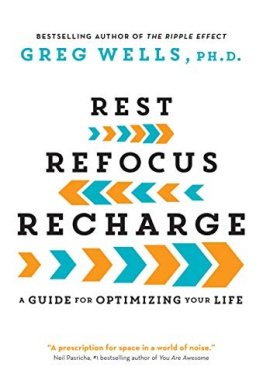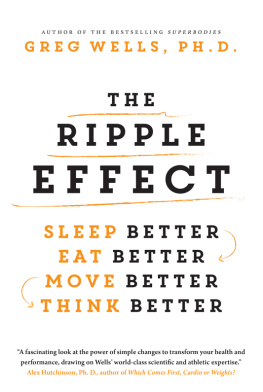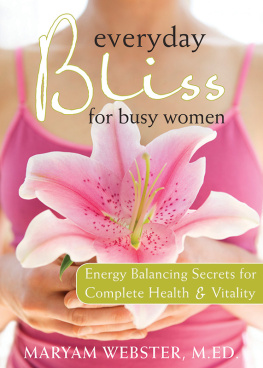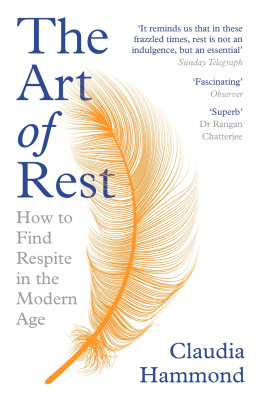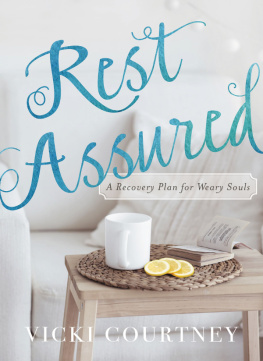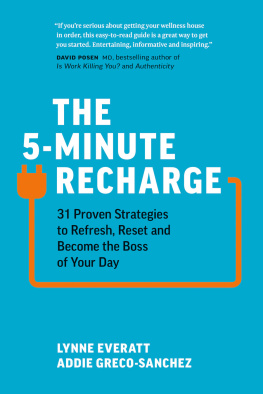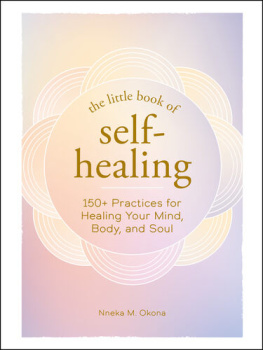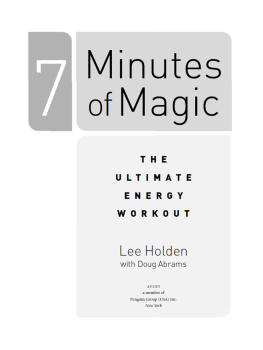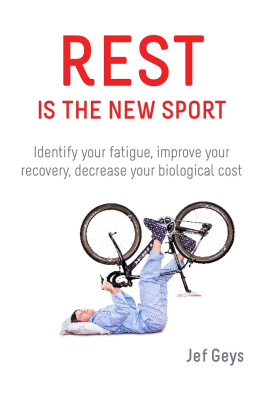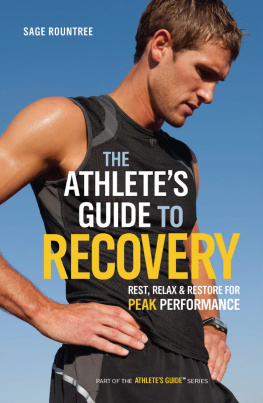For Judith, Ingrid, and Adam
Contents
Pivoting from busy to deliberate, sleeping better, fasting to get healthier, and using the power of delta brainwaves to recover
Pivoting from threat to challenge, de-stressing, boosting metacognition, and using alpha brainwaves to learn better and think strategically
Pivoting from distraction to focus, exercising your brain, harnessing the power of cold, and leveraging beta brainwaves for optimum performance
Pivoting from tension to ideation, practising conscious relaxation, sparking creativity, regenerating your brain, and using theta brainwaves to ideate
Pivoting from routine to extraordinary, manifesting the power of gratitude, and shifting into gamma brainwaves to access flow states and peak experiences
This idea that unless you are suffering, grinding, working every hour of every day, youre not working hard enough... this is one of the most toxic, dangerous things in tech right now. It has deleterious effects not just on your business but on your well-being.
A LEXIS O HANIAN
O ver 50 years ago, Sir Paul McCartney woke up and headed straight to the piano to play a melody that came to him in a dream. He didnt have lyrics yet, so he sang Scrambled eggs, oh baby how I love your legs while he tried out the chords. For months while John Lennon and McCartney attempted to write the lyrics, they jokingly called it Scrambled Eggs. It wasnt until much later when Paul was on vacation that he wrote the words to one of the worlds most beloved songsYesterday.
Of course, not all breakthroughs are as big as McCartneys. Everyday epiphanies can be just as important. I was reminded of this recently when a young woman came up to me after a talk to ask for advice. She was struggling to concentrate at school. We talked about how the brain lights up during exercise, and I gave her a copy of my previous book The Ripple Effect. When she got home, she sat by a window with her cat and read the section about movement and learning. She then memorized a key section from the book in a single sittinga skill that she had been struggling with before. The next day, excited about her learning breakthrough, she recited that key section of the book to her teacher and asked if she could use a wobble stool at her desk so she could move during class and focus better. The teacher agreed, the wobble stool helped, and her grades and confidence improved.
What I love about this anecdote is that it illustrates the power of simple changes in behaviour. Instead of being stressed or watching TV when she got home, she turned off all of her electronics and grabbed a book. She put herself in a relaxed position and engaged with nature through a windowand her performance improved. She had been struggling to focus in classuntil she used a little movement to spark her learning. Little changes like these can have a big effect.
In todays hustle culture, its easy to forget that inspiration and peak performance dont happen without helping your body do what it is designed to do. You need time to slow down, rest, and properly recover and recharge.
Even though we are living in the best time ever in human history, many people are struggling and feeling exhausted, anxious, and unhappy. We dont lead the healthy, high-performance lives were capable of and deserve. We dont reach down to our depths and activate our hidden potential so we can climb to new heights. Were making five sacrifices:
- Were sacrificing our health for our wealth.
- Were sacrificing quality for quantity.
- Were sacrificing response-ability for reaction.
- Were sacrificing attention for distraction.
- Were sacrificing internal motivation for external rewards.
The Path Forward
I see a clear way out of this, and it begins with our physiology. Looking at the fundamental changes that have been happening in the sports world over the last few decades really highlights how making simple changes to our habits can deliver great results.
When I was a competitive swimmer in my youth, and then coaching athletes in the 1980s and 90s, the standard philosophy was to train as much as possible: Lift the most weights, run the most miles, swim the most metres. I remember one training camp where I swam 10,000 metres in the morning and 12,000 metres in the afternoon... 4 days in a row. My events were 100 and 200 metres.
Back then, if athletes were lucky, they might get a massage at the end of a main competition or season. Stretching was optional, at best, and recovery practices consisted of some ice packs on aching joints. Often, the most successful athletes were the ones who were able to handle intense training without getting sick and injured. As a result, athletic careers were short, injuries were common, burnout was a given, and mental health suffered.
Fortunately, things have changed. We know so much more about human health and performance. Thanks to serious research into recovery and regeneration, scientists now understand that what athletes do when they are not training is as important as training itself. Think of NBA star Kawhi Leonard. During the season when he was with the Toronto Raptors, his sports scientist, Alex McKechnie, incorporated breaks into his schedule (now commonly referred to as load management) to ensure that Kawhi properly recovered from his injuries, developed his fitness during the season, and then peaked for the playoffsultimately helping the Toronto Raptors win an NBA title. This idea of the 24-hour athlete has become standard among athletes and coaches, who have learned about the importance of sleep, healthy nutrition, optimal training techniques, immunology, massage, and the use of heat and cold, among other techniques, from sports scientists. Stretching (now seen more as mobility training) is used to build range of motion and to keep tissues healthy. Massage is a legitimate tool that can be used strategically to decrease inflammation. Cold-water immersion can activate the parasympathetic nervous system to help speed recovery.
Sports careers have become longer, and we now regularly see Olympians competing at the Games in their 30s and even 40s (and in equestrian athlete Ian Millars case, in his 70s!). Where athletes used to peak once per year, many now compete at a high level on World Cup or X Games circuits throughout the year and then also peak at major events such as world championships or the Olympics. Perhaps most importantly, athletes and coaches are now working on optimizing physical, mental, and emotional health as a foundation for world-class sporting excellence.
We can break free from the sacrifices that keep us from reaching our potentialand its the science and practice of recharging that will help us achieve it. Its time to take what we have learned from the sports world and apply it to our school, workplace, and home lives so we can get healthy, perform better, and ultimately focus on the things we really want.
It all starts by slowing down to speed up.
Rebuild to Recharge
I am a performance physiologist. My area of expertise is the science and physiology of peak performance. I love studying the human body and the ways different organ systems, including the brain, interact and shape each other for the better.
Consider your heart. It started beating about 21 days after you were conceived and wont stop until the very last moments of your life. During its lifetime, it alternates between relaxation (when your heart fills up with blood as it returns from your body) and powerful contractions (when your heart pumps blood to the lungs, where it is re-oxygenated and pushed back out to your body to replenish your cells). This relaxation/contraction cycle repeats over and over againa perfect example of the balance between recovery and work. Upsetting this balance leads to severe illness.
Next page
